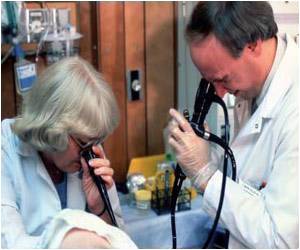Medical experts fear the NHS is increasingly ill prepared to provide timely care to those who will be diagnosed with cancer in the future.

‘Bowel cancer is the fourth most common cancer in the UK, with 41,000 new cases each year and 16,000 deaths.’





Last year 132,138 patients in England did not see a cancer specialist within the 14-day target. Nor did they start treatment, such as surgery or radiotherapy, within 31 days of diagnosis, or 62 days after initial consultation and tests, according to analysis of NHS data conducted by Cancer Research UK. Research on more than 30,000 patients found that those over the age of 75 were 65 percent more likely than younger patients to be suffering from bowel cancer. Bowel cancer is the fourth most common cancer in the UK, with 41,000 new cases each year and 16,000 deaths.
Britain’s poor record on diagnosis has been blamed for its “shameful” place in international league tables, with one third of cancer sufferers dead within a year of disease being found. It comes as cancer diagnoses are set to rise still further from unhealthy British lifestyle choices including smoking, drinking and overeating.
Professor Peter Johnson, Cancer Research UK's chief clinician, said, 'These figures are alarming. The number of people for whom these targets are being missed is a real source of concern. Delay creates additional anxiety for people. That matters for individual patients affected in a precise way because they have a prolonged period of uncertainty. Do I have cancer or do I not? And if I do have cancer, will it be curable?'
Delays in some hospitals have seen more than 6,000 people who should have had their first treatment within 62 days of being urgently referred by their GP were forced to wait 104 days or more.
Advertisement














